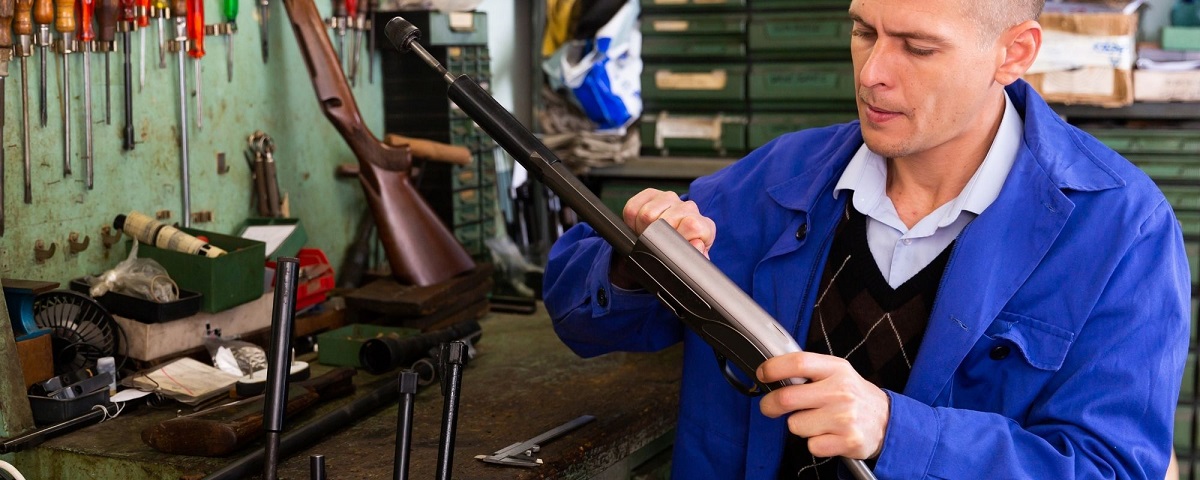
16 Essential Gunsmith Tool List
As you might imagine, a serious gunsmith is always on a lookout for new tools and gadgets, and therefore, he owns an impressive selection of tools and machines which help him do his work and take his creations to the next level. However, even if you are not a professional or a gunsmith at all, but you own firearms and you wish to do minor work or modify your guns from time to time, you’re still going to need tools for gunsmithing.
In this line of work, there are some tools you cannot go without, so we focused on basic tools every gunsmith (both serious and weekend hobbyist) should own. Then, we thought about the non-gunsmiths as well, and came up with a list of Top 5 Must-Have gun Smith Tools.
Tool #1: Gunsmith Screwdrivers
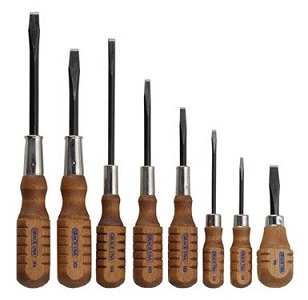
Each gunsmith, firearms hobbyist or a gun owner should invest in some specialized gunsmithing screwdrivers. Why? Because hardware store screwdrivers are not same as screwdrivers made for gun smiths.
Ordinary screwdrivers are not well suited for gun work and can damage screw edges and can damage the finish as you apply pressure, while specialized screwdrivers have tapered and beveled heads, which fit properly in most screw slots found on various types of guns. The blade needs to fill the screw head completely, as a perfect fit provides control, eliminates tilt and wobble, and prevents you to injure you hand and your weapon.
The two types used most often are magnetic-tipped and fixed-blade screwdrivers. Screwdrivers with magnetic tips have hollow magnetic ends, which hold the screw against the bit, and are quite handy when you’re working with the smallest gun screws. Fixed-blade screwdrivers provide more strength and maximum control.
We can suggest Brownells, as they have a wide selection of different single screwdrivers and sets, both with fixed blades and magnetic tips.
Tool #2: Gunsmith Pin Punch Set
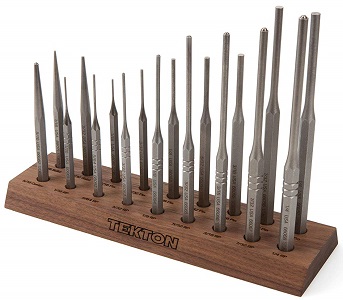
Pin punches are designed to easily remove roll pins from firearms which are encountered during the repair or assembling. You can purchase one pin punch, but it is recommended to buy a whole set, in order to have an appropriate size punch at hand (using the wrong size punch can cause the pin head to flare and can ruin the firearm surface. It is also recommended to have steel punches as well as brass punches. Brass punches won’t mar the surface as you tap in a pin, because it is much softer than the steel pins.
The balled tips of pin punches, like the ones from Grace USA, help locate the punch on the pin and they protect pin ends from damage during removal or installation.
Professional gunsmiths have an entire assembly of different types and sizes of punches, including at least starter punches, drift punches, pin punches and roll pin punches. It doesn’t matter whether you have one or many punches, important is to invest money in quality (brands like Brownells, Starrett, Craftsman are high-quality). Cheap punches will bend and brake plus get your workpiece in danger.
Tool #3: Gunsmith Hammers
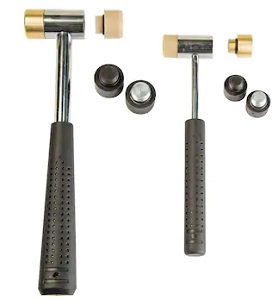
Hammers are used for hitting pins and getting them in their place. Of course, gunsmith hammers are designed to do so without leaving a scratch or chipping the surface of the gun. Most commonly used hammers are brass hammers, because brass won’t damage the steel and marks left by it can be removed quite easily. Brass hammers are used mostly for driving stubborn pins, freeing up choke tubes or tapping frozen screws.
You buy combined hammers, with heads made out of brass on one side and nylon on the other as nylon can be used during delicate jobs which require precision and carry danger of ruining the gun finish.
Second options is to buy ball-peen hammers, since they provide excellent balance and control during precision work on the one hand, and maximum striking force applied to a small area when using the ball-peen side. Experienced gunsmiths say that a small 14-ounce ball-peen hammer would be sufficient for most work.
Some also invest in gunsmith rawhide mallets like the C.S. Osborne mallets because rawhide hammers deliver precision blows which protect pins, punches and soft parts of the firearm and won’t damage wood nor metal. Dead blow rubber mallets are also recommended for minimizing the damage of the surface in cases where you need to apply some pressure, and a 14-ounce mallet would do the job perfectly.
Special packages: You also have the option to purchase these top 3 basic tools in a gunsmith tool kit, like the one from Grace USA. It’s a basic firearm care tool set which includes screwdriver and brass punch sets and an 8-ounce brass hammer.
Screwdrivers, punch pins and hammers are considered basic tools in case you want to just take the firearms apart and put them back together. However, 2 more tools are considered essential if you want to take good care of your firearms and want to make your job a lot easier.
Tool #4: Gunsmith Vise
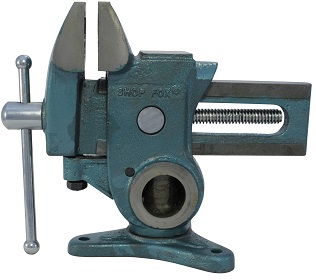
Every gunsmith or firearm enthusiast should invest in a good vise, as it is essential for holding a firearm still during repair work or assembly. Many coat vise’s jaws with leather, because the leather protects the firearm’s finish additionally, while others purchase protective soft magnetic jaws, like the ones here. Soft jaws are used, for example, for clamping down barrels and are designed to hold them firmly enough to get the job down without damaging them. Hard jaws (for example, made of heavy duty phenolic) are also handy and are used to clamp down heavy pieces without damaging the finish of a gun.
There are all kinds of bench vises for gunsmithing, like the ones that are fastened to the workbench or the ones that are secured to a block of wood. There are also vises that can be positioned both horizontally and vertically and that can be adapted to any job you are conducting whether sanding, soldering, stock work or drilling. It is especially useful when you work on small parts, like holding a trigger sear for stoning.
You can get by with small, temporary mounted clamp-on vise, but it’s always better to invest in a medium size (4-6 inch jaw size) vise which is permanently mounted on a workbench with a strong foundation. Make sure you attach it to your workbench in such a way that it allows you to approach your workpiece from every angle. After all, vise is one of gunsmith’s essential tools on his workbench, so invest in a good vise with rotating heads.
Tool #5: Bench Block
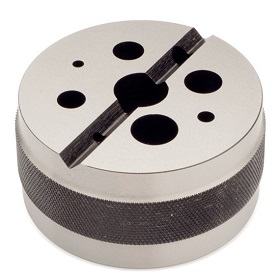
Bench blocks are used to stabilize parts of the fire weapon and prevent them from rolling during pin driving or pushing, which makes any detailed work much easier to perform.
Bench blocks are produced in various sizes, some are shaped based on the specific models of guns, and the holes in them let pins drop free. Because bench blocks cannot damage the firearm’s surface, they are made of materials such as wood, nylon or polyurethane.
If you want to a be a decent gunsmith, you need basic gunsmithing tools. These tools won’t only make working on weapons easier, they’ll also make the job done.
Struggling to repair or restyle your gun with poor-quality gunsmith tools is a one-way ticket to damaging arm, and potentially causing it risky to use.
Putting money into some high-quality, purposeful tools is the best way to equip yourself for any gunsmithing task. Therefore, our gunsmithing experts team made a list of the 10 essential gunsmithing tools for DIY or professional gunsmiths.
Besides, these 5 vital beginner gunsmith tools there is a long list of 11 other best gunsmithing tools such as
Tool #6: Screwdriver Set
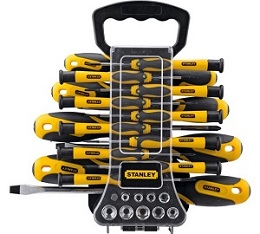
If you want to be a good gunsmith, you need to have an adequate set of screwdrivers. Forget that ancient set that has been in your garage for many years. Because it’s not a good idea to use any old household screwdriver when working on guns. Typical household screwdrivers aren’t crafted for the delicate screws used on arms and may more readily slip and damage the finish on your firearm, or even strip heads.
Instead, you need specially ground and shaped screwdrivers that will minimize the chance of slippage and fit the screw head better. These gunsmith screwdrivers can range in prices from low-cost to very expensive.
Tool #7: Hex Key Set
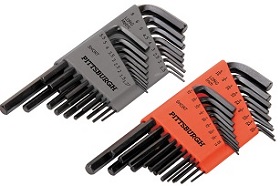
Besides the pins, plenty of modern firearms utilize hex bolts. For these, you need a hex key set. Keep in mind that if your guns were produced outside the USA since they probably use metric-sized hex bolts, which US key set isn’t compatible with.
Tool #8: Armor’s Wrench
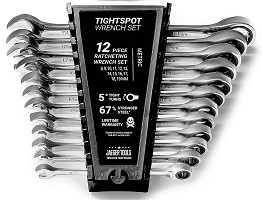
Armor’s Wrench it’s an excellent versatile tool, which is basically a wrench that contains a few of the most common bolt sizes used on weapons. The wrench is especially useful for working with Winchester’s since it can be used to take off the barrel swiftly.
Tool #9: Torx Head Drivers
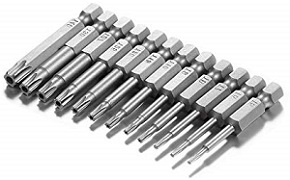
It’s a precision-machined steel shaft that is heat-treated for excellent strength, so when you’re struggling to loosen stubborn screws, these drivers won’t give out and break like bad-quality hardware store drivers. Shaft lengths are perfect since they provide the right balance of rigidity and reach. Its comfy, ergonomically shaped, synthetic rubber handle makes you a secure, non-slip grip and great control.
Tool #10: Calipers
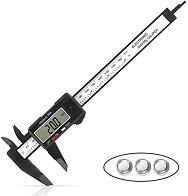
Caliper is a linear measuring instrument consisting of a scaled rule with a projecting arm at one end, to which is attached a sliding vernier with a projecting arm that forms a jaw with the other projecting arm. They can be used as a dial and digital gunsmithing tool.
Tool #11: Micrometers
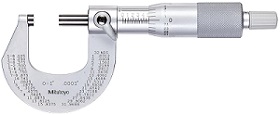
It is a precision measuring tool, used to determine very fine measurements. They typically measure in 0.001 inches. The measurements micrometers provide can be more accurate than those given by other measuring tools like vernier calipers or dial calipers but depend very much on the user’s care. The most common types of gunsmithing micrometers are digital depth and data tube.
Tool #12: Gunsmithing Feeler Gauge
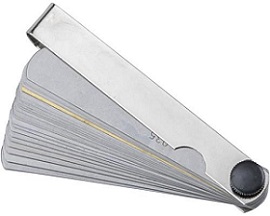
It’s a hand-held measuring instrument with a number of folding metal strips which are designed to specified thickness levels. Measurements are in inches and can be found in a central location on each individual strip. Gunsmithing Feeler gauges can take measures as small as 0.0008″ and as large as 0.200″. The size of a feeler gauge as inscribed on the tool refers to its thickness.
Tool #13: India Stone

An India Stone is made from the manufactured abrasive aluminum oxide. The term India Stone is a brand name for Norton’s aluminum oxide sharpening stones. It can be in fine, medium, or coarse grit.
Medium grit is ideal for quick cleanup of the man-made burrs found in almost all new firearms. Fine grit is a great mix of smoothness and speed of cut to put a finer finish on parts for smoother and slicker trigger pulls.
Tool #14: Needle Files
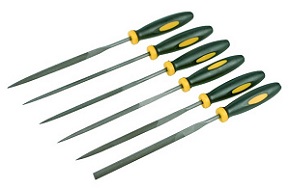
High-quality, needle files are designed for one purpose only, to cut square screw slots every time. This gunsmithing tool is very thin for precise cutting. Needle files can be used to widen dovetail slots in gun barrels without danger of deepening the slot or damaging the edge not being worked.
Tool #15: Laser Boresighter
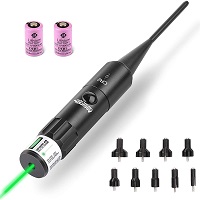
Laser Boresighter it’s a user-friendly tool, a self-contained boresighting (a technique of adjustment to an optical firearm sight or iron sights, in order to align the firearm barrel and sights) system fits in the chamber of your firearms and projects a powerful red laser ray aligned with the bore axis for sighting to the target without firing. Works with holographic red dot sights, “iron” sights, and scopes.
Tool #16: Dremel
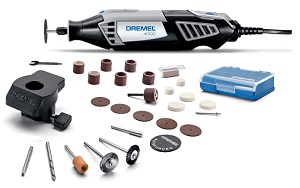
Dremel is a handy rotary tool that uses a variety of attachments and accessories. You can apply a Dremel tool on metal, glass, wood, electronics, plastic, and many other materials. Dremel tools are very useful for gunsmithing projects, especially for barrel polishing. Once you learn the basics and try your Dremel out on a few gunsmith’s tasks, you’ll quickly come to appreciate this versatile tool.
